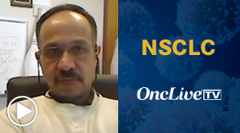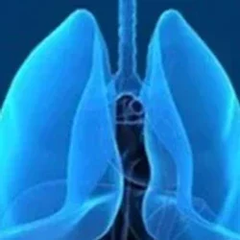
Dr. Borghaei on Unique Characteristics of EGFR Exon 20 Insertion Mutations in NSCLC
Hossein Borghaei, DO, MS, discusses unique characteristics of EGFR exon 20 insertion mutations in non–small cell lung cancer.
Episodes in this series

Hossein Borghaei, DO, MS, chief, Division of Thoracic Medical Oncology, director, Lung Cancer Risk Assessment, professor, Department of Hematology/Oncology, co-director, Immune Monitoring Facility, Lung Cancer and Mesothelioma TRDG member, and Gloria and Edmund M. Dunn Chair in Thoracic Oncology, Fox Chase Cancer Center, discusses unique characteristics of EGFR exon 20 insertion mutations in non–small cell lung cancer (NSCLC).
Next-generation sequencing panels are able to identify EGFR exon 20 insertions; however, the mutation is not as common as EGFR exon 19 or exon 21 mutations, says Borghaei.
Notably, patients who harbor EGFR exon 20 insertions do not respond to traditional TKIs that are commonly utilized for EGFR-positive patients, Borghaei explains. Additionally, these mutations are biologically different from traditional EGFR mutations, says Borghaei. As such, developing novel therapies that specifically target EGFR exon 20 insertions has been an area of ongoing research, Borghaei concludes.
















































